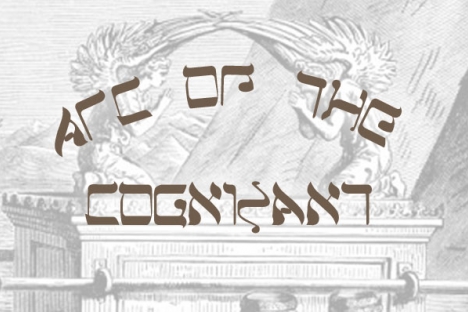COLUMN: The power of symbols, the thirst for revenge -- humanity in peace and war
Symbol and revenge: being human in peace and war
“The Fuhrer alone is the present and future German reality.”— M. Heidegger
“Vengeance is mine, saith the Lord.” — Deuteronomy, 32:35
What is a symbol?
Let me cite my dictionary: “an object, animate or inanimate, standing for or calling up something moral or intellectual; an emblem, a type, a sign.”
Every word you read is a symbol; it is not the thing itself, but a signifier we all agree means the thing, if we all speak the same language.
A national flag is a mighty emblem; so too the poppy, the crucifix, a swastika, and a valentine heart. Less mighty but just as well-known are the signs for male/Mars and female/Venus, the red circle with the diagonal line used on street signs to indicate “no,” a dollar sign, and a pointing arrow.
In special circumstances, a thing cannot be symbolized but is itself the symbol of a multitude of significances: the Bible, the Qu’ran, a church, mosque, or synagogue.
Emoticons are symbols, and users of social media easily recognize a dozen as having meaning for emotional states. Happy face, thumb up, frown, crying etc.
Remember this, during the Viet Nam War: “America – Love it, or Leave it.”? I do. The peace symbol was attacked and the stars and stripes were burned by the opposing sides. (The two-fingers-spread “peace salute” that I see everyone, everywhere, using now to indicate “hi!” and “yes!” is a wonderful lesson in the evolution of a symbol from one meaning to non-meaning, but that topic would be a tangent. The rude middle-finger salute is also an innovation during my lifetime, since in 1962 we used a jerked, upright thumb motion to mean f*** off. Honestly. Easy Rider marked the changeover).
I think my point is made. The next point is less obvious. How are some symbols made powerful? Why is the Christian cross a mighty symbol, but an emoticon is not? What is powerful about a symbol?
Power in a symbol is a measure of its capacity to provoke or elicit emotion in a human, to seem to the human so nearly “real” in being what it stands for, that the human will invest much effort to protect the symbol from harm. Religious symbols are remarkable for the power they have to move our hearts and minds and acts.
The flag of Canada is supposed to mean a lot to us, particularly to our warriors on a battlefield for whom harm to the flag is “disgrace, dishonour, shame, severe humiliation.” We are expected to behave a certain way toward our flag, and observe ceremony if it is being raised or lowered. Signs of respect include bowing the head, taking off a hat, or a salute. A flag at half-mast is a symbol for grief. Allowing a flag to touch the ground unintentionally, or even by design, will offend some Canadians.
I call your emotional reaction to the sight of a symbol, and a feeling that what happens to the symbol is personal, feels complimentary or offensive, being “invested” in the symbol.
If seeing your national flag or religious icon “humiliated” by another person’s action – spitting on, trampling on, etc. — feels to you as if it is your body being treated so, you are invested in the symbol, very heavily. That is the power located in a symbol. You put the power there. Masses of humans all feeling the same emotional investment in the same, consensual symbol, gives immense power to the symbol. If numbers of people have suffered and/or died in service to a symbol, those deaths give the symbol immense potency. It has an intangible force to coordinate the indoctrinated masses of a population for cooperative action.
Insult or destruction of a symbol can energize the brain of homo sapiens in a very deep basement, exciting the human spirit to violent behaviour. Vengefulness, the spirit of revenge, is a primitive emotion. It is entombed down in the old “reptile” brain-stem or in the (Jungian) “shadow” of the psyche or in the reflex of Ego – choose your preferred tool of analysis – and humans respond to this motive as to an appetite. It demands to be fed. It easily feels like a thirst for justice, but wrongly so.
I will return to the subject of revenge, and symbolic restoration of justice, presently.
Event as Symbol
An entire event can symbolize a whole constellation of feelings. War is one of the big such events. The best book on that subject is by Chris Hedges, War is a Force that gives us Meaning.
The Viet Nam War became a symbol in the 1960’s: if you opposed it, you stood with the Youth Movement, drug experimentation, sexual revolution, rock ‘n’ roll, the improved future; and if you supported it, you were old, feared the new recreational drugs (you preferred the old one, booze), disliked sexual “immorality” and rock music, and looked to the recent past as some kind of American golden age. The “generation gap” found its fracture line in this war; the phenomenon known as “the culture wars” in the USA originated in this cold-war era. Masses of people came out to protest against that war, and had some definite but immeasurable effect in ending that conflict. How one thinks about that war today is a fair indicator of one’s present political leanings.
Here is a question that has symbolic significance, if you choose one reply over another: did America lose the Viet Nam War? It seemed so, in 1975, but really… ? strong, cogent arguments have been made, by no less a left-wing icon than Noam Chomsky, that the US won in many significant ways despite the South being forcibly annexed by the North after America made peace in 1973. The Left still says Yes, the empire lost that war, because the Left is in love with the symbolism of Revolution, with the People rising up, with popular violence against imperialism – a completely Romantic love of violent social change (among intellectuals) dating back to the time of the French Revolution. Revolution and war make wonderful symbols, properly massaged by historians who serve as the messengers of a particular “interpretation” of a past. As the witticism goes, “Revolution is the opiate of the intellectuals.”
World War Two is a symbol for the Allies, it was a good war, a just war, and is the ultimate argument for many that war can be glorious and the victors can deserve reverence. The symbol of Hitler as evil incarnate makes all his enemies heroes. In Canada we celebrate Remembrance Day with righteousness because of this war. When President George Herbert Bush pronounced, referring to Saddam Hussein, “this man is Hitler,” he launched a UN coalition against Iraq in the last good war America engaged in. And note, Bush knew precisely when to stop the war, with Saddam still Iraqis ruler, before the war escaped its purpose, for which I still respect his leadership. His son was a fool, and opened the Pandora’s box of Mid-east war by invading Iraq in 2003 in a manifestly useless action that was massively unpopular in the US even before he gave the order. Leaving Saddam in office would have been by far the better option.
I will have more to say about war and symbol in my conclusion.
Person as symbol
A symbol is an instrument, a useful tool, a utilitarian object that humans can employ. We employ language constantly. We use signage on streets to make drivers and pedestrians understand what is required of them. They’re useful.
Can a person be a utilitarian object? Sadly, to me, the answer is a clear yes. A slave is a tool of the master. But symbolism turns a neat trick. An extremely powerful person, a ruler, can also turn himself into a symbol, but the ruler is nobody’s servant… or so one would think. The ruler answers to no higher authority.
But pretending to serve might well increase one’s appeal, and that is where symbolism is a neat trick – the ruler propagates a notion that he or she “serves” the nation, and in her or his person embodies the entire nation. Thus a king, queen, czar, high priest, president, or any other sovereign power projects themselves as symbols of the entire population of their subjects, and can mobilize the masses by appealing to the subjects’ investment in the symbol. If you disrespect my Leader/Duce/Fuhrer, you have dissed me too.
Any individual in human social life who possesses the status of a symbol is a force to be reckoned with in the society under study. One society’s symbolic person is not another’s, but unless one wants to offend the other, we tend to treat the symbols of other societies with careful regard so as not to create conflict between us.
Name-dropping.
Queen Elizabeth, John Lennon, Gandhi, Hitler, Donald Trump, Doug Ford, Don Cherry, Mao Zedong.
These are people who provoke a degree of feeling in the societies over which they preside or within which they are or were cultural and political leaders. The “degree of feeling” is not readily calculable but one can hazard reasonable guesses as to the relative force of emotion each person named can elicit from the people of their milieu. John Lennon can be safely placed at the bottom of the list; the power of his symbolism is cultural and his base is committed to peace, as he was.
Today, in the developed western world, there is no one with the power to elicit more potent feeling than the American president, and yesterday in the recent past, no one whose symbolic power surpassed that of the German Nazi leader. Hitler still scores very high as a powerful symbol but since he is no longer living and no longer making political events, he cannot be calculated in the balance with living leaders. No doubt in my mind however that he has much more power to provoke than Gandhi for Indians and for progressives in the West, or Mao, who might not be known to many alive today. Haters of socialism and communism probably know Mao better than his erstwhile disciples; Mao has fallen from political grace in China’s ruling party today.
The Queen matters to her “subjects” in the UK and Canada but not in a very heated way; Canadians who notice her feel a tepid liking for her and cringe when her family does something inappropriate, and probably most Britons would be enraged should an enemy harm the crowned head. But mostly her symbolism lacks the force one can observe when Donald Trump verbally provokes his haters and uplifts his base.
Doug Ford means rather little outside “the political classes” in provinces other than Ontario; I follow his antics more than many in BC, and in Ontario itself many people ignore him, apparently feeling no loss in democratic participation in their own government. For me, Ford is a symbol — but not for many others. I see in him a diluted form of Trumpian populist ignorance at work, of resentful celebration of uneducated opinion among “the average joe and jane in the street and in the workplace.” He is on the political right but traditional conservatives are aghast at Ford’s boorishness as are some conservative Americans confronted by their president.
So, with my take on what Ford symbolizes, I was fascinated by how our prime minister used his own chosen symbolism of Doug Ford in the federal election. For Justin Trudeau, Ford was the flag-bearer of “cuts” and Justin made Ford appear to be carrying the flag Andrew Scheer was afraid to fly… but meant to unfurl if he won. Congratulations, Mr. T., you hit on a winning tactic among Ontario voters.
The worst phenomenon I fear behind Trump is that the people whose living and being he symbolizes might resort to violence and pitch America into civil war if he loses the election in 2020. Such choices are the very language of making symbols mean much too much. A defeat of Trump is not an assault on one’s person, yet that is apparently how many of his base are prepared to translate a defeat.
I fear his base will not accept defeat and will find leaders to take up their cause; they will want revenge. There have been fine pieces of writing about this in the pages of Harper’s and The Atlantic this year. Trumpeters feel the opposition to their man is an insult to themselves, to their way of life, thought, and culture. They have allies in very high levels of American society. Violence substituting for peaceful political action isn’t an unrealistic prospect and I don’t think I am an alarmist in saying so.
Cherry Jam
I am a steadfast non-respecter of professional sport and the multi-billion-dollar entertainment industry it finances. I watch no game, nor do the Olympics inspire me. But I try to understand why other people feel differently and many know Don Cherry as a competent commentator on the game they love, Canada’s sport-religion.
What I conclude from what I see on social media, news media, and overheard conversations in streets and Tim Horton’s, is that Cherry is a symbol for people, as Trump is. He stands for an assertive way of being, a substance as well as a style.
Loud-blustering, opinionated-without-research, insensitive-to-others (including to his sidekick Ron McLean), self-confident in his ignorance, and uncaring what others think about his socially-inept, politically-inappropriate character – a role he plays, with his tone, clothes and physical stance – Cherry is a caricature of the “rube” or “square” or “redneck.” And the people who invest in him as a symbol of themselves are most upset about his firing.
But the people who dislike him intensely also let him be a symbol for what they most reject, just as liberals make Trump the rep ulsive idol for baseness and gross, tasteless, inept, bad behaviour. The two sides mirror each other all too well.
Cherry the person is not Cherry the symbol, and he knows it. But his overfed ego has led him to speak and act as if he is who his base wants him to be. He was well-paid as a performer, and was fired for professional incompetence, offending too many too often by comments having nothing to do with hockey. An entertainer-commentator is not guaranteed job security; when he fails in his job of attracting audiences, and seems indeed to be a liability to his employer — how can Cherry’s supporters claim unfairness when he is fired?
People on all sides are taking the controversy as an occasion to debate the meaning of free speech. I see and hear many loudly declaring that how Cherry was fired is a sign that freedom of speech is at risk. I simply cannot see it. He is still free to speak and he will no doubt find a right-wing medium to pay him, but one media company has decided he is not someone to represent them, and severed his contract.
Free speech is alive and well in Canada, my compatriots. Can we talk about it?
My Two Cents’ Worth
Freedom of speech is not licence to defame, denigrate, or profane without consequence. Cherry made remarks unmistakably aimed at a certain demographic and in consequence his employer made an executive decision. Why is this a freedom-of-speech issue? Action, followed by consequence: entirely proportionate, no over-reaction nor weak response can fairly be called out, as I see it.
If I express distaste for Cherry, I appear to join the haters. But I disliked him for his bully’s love — fetish — of physical violence in the game he purported to love. He has made much money from his repellent “rock ‘em sock ‘em” hockey videos.
I care less about his politics but since it is politics that have been his demise, his base is very angry in a political manner. They see their way of being, talking, thinking, insulted by his bosses when they fired him, and project the insult on themselves as coming from the “politically correct” camp; they see the people who look down upon them celebrating Cherry’s fall into disgrace. Mock Cherry and you mock me, is the sentiment there.
Conclusion: why is revenge so sweet?
Will readers find me inconsistent, given my anti-war habit of mind and speech over many columns, when I say I am pleased and even joyful that the USA and USSR defeated Imperial Japan and Nazi Germany, respectively? I am, profoundly.
I make a judgment here. The victory of Germany and/or Japan would have unleashed what I consider evil. Evil is not a word I use easily, and I do so rarely.
I came to a full realization of this fact as I watched a new film, Midway, in a theatre November 23. No doubt, this is a film to uplift American spirits – asDunkirk raised British self-esteem last year — and its portrayal of Japanese behaviour – while the film is dedicated to both American and Japanese who fought the war – leaves little reason to doubt Imperial atrocity. It is not a fiction that the Japanese Army in China perpetrated untold horrors on the Chinese, and the film takes one powerful, brief moment to make the point. I say here, never mind about the A-bombs dropped on Japan. Weighing relative horror is not the point.
Humans, as I said above, feel the spirit of revenge as an appetite for justice, where justice is conceived as “an eye for an eye.” Do I wish that notion of justice to prevail? No. But I would be a fool to discount the power of the feelings, and the awful experience of the disaster at Pearl Harbour, and the symbol of infamy it was turned into, made Americans supremely resolved to win the war. As the surprise attack by the Nazi Wehrmacht on the USSR, the socialist Motherland, made Russians resolved to endure, with Stalin as their iron symbol of communal purpose.
The USA was the one naval power who could stop Imperial Japan from laying waste to east Asia, as the USSR was the one land power with a force to stop Hitler. (The British Empire was tasked with defeating fascist Italy mostly on its own.) I’ve been amazed before at the congruence of the opposed forces, and as I say, so very grateful that the less-evil side prevailed in the war. In this case, yes, war appears necessary.
Humans seem, in my not-completely-uneducated estimation, quite removed in time from an era when we will abjure violence organized into war. We can, I believe, make real progress toward pacific resolution of differences, without resort to weapons. It is a matter of nurture and culture; our evolved nature will continue to include violent impulses, but they are within our capacity to manage – not eliminate, but minimize.
A great contribution to that task is the deliberate disavowal of symbol to motivate our mass societies. Leaders and collective institutions like the UN, educational systems, and religious teaching, must step up. It is a feasible human project.
“When the wise soul [Sage] accomplishes the task, the People say, ‘it happened.’”
As the Tao Teh Ching indicates, a leader can lead without being noticed, and that’s the kind of governing individuals I would entrust with this task: draining symbols of any meaning in the minds of the masses, rendering symbol impotent as a motivating force for our baser responses.
“To rule without leading, this is a great mystery.”
(the Tao, chapter ten, Le Guin version.)
























